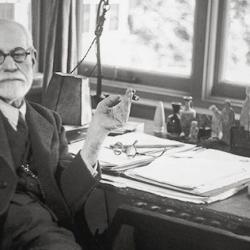What is tragedy? Some might think that it’s an easy question to answer. Crack open the nearest copy of Aristotle’s Poetics, and there you have it. It’s not so easy.
What Chaucer meant by tragedy is not what Aristotle met, and in the modern age Hegel proposed a different theory of tragedy with predictably Gnostic overtones. To make things complicated, A.C. Bradley’s classic study of Shakespearean tragedy reads Shakespeare Hegelianly.
Let’s refine the question: What is a Shakespearean tragedy? To get a clear angle on that, it’s helpful to review Aristotle’s, and to do that we have to reach back to Plato.
Plato famously argues in Book 10 of the Republic that poetry, which includes drama as well as lyric and epic, “has a terrifying capacity for deforming even good people. Only a very few escape.” Apart from “hymns to the gods and eulogies of virtuous men,” he “flatly refused to admit any representational poetry” into his ideal city.
Plato has both metaphysical and a moral objections to poetry. On the metaphysical side, Plato believes that only the forms are fully real; sensible things are images of intelligible reality. Poets create representations of things that aren’t really real to begin with. Two removes from Truth, artists can’t help but falsify.
On the ethical side, Plato objects that poets represent forms of behavior that ought not be encouraged in a virtuous city and arouse passions of lust and anger that “should be left to wither.”
Plato may have been one of the targets of Aristotle’s Poetics. In any case, Aristotle’s theory responds to both side of the Platonic suspicion of poetry.
Perhaps in reply to Plato’s metaphysical objection, Aristotle argues that all art is “mimetic,” an attempt to imitate something in the world. Plato believed the same, but the two philosophers meant something quite different by “mimesis.” Plato believed that artistic imitation was like a mirror held up to reality and should directly reflect what is real. Since it cannot mirror reality, it lies. Aristotle is aware that artistic mimesis doesn’t directly reflect reality, but proposes that even a distorted image can reveal something true.
Aristotle’s response to the ethical objection is evident in his definition of tragedy as “an action that is serious, complete, and of a certain magnitude; in language embellished with each kind of artistic ornament . . . in the form of action, not of narrative; through pity and fear effecting the proper purgation of these emotions.” The last clause highlights the moral effect of drama.
This has often been interpreted as a moralistic theory. Tragedy tells of a generally decent fellow in a high position who falls because of some immoral act that reflects a basic “tragic flaw” (hamartia). Usually, the tragic flaw is “hubris” or pride. Guilty of pride, the hero receives his just deserts in the end, so that the often bloody finale brings “poetic justice” to bear on the fallen hero. Watching this spectacle, the passions of the audience are “purged” (katharsis), uplifted and purified. Members of the audience go home better men and women for having watched the morality tale.
This interpretation of Aristotle is largely the product of French and English commentators from the early modern period. They misunderstood Aristotle very badly. It’s true that Aristotle believes that the best tragic hero is a man in a high position, but he does not say that the hero falls because of an immoral act. In fact, he explicitly denies it: Anyone who acts immorally should suffer for it. The key point about tragedy is its cathartic effect on the audience. The fall of a wicked man “would, doubtless, satisfy the moral sense, but it would inspire neither pity nor fear,” since “pity is aroused by unmerited misfortune, fear by the misfortune of a man like ourselves.”
The moral interpretation of Aristotle grows out of a Christian understanding of hamartia, the word used by New Testament writers for “sin.” But Aristotle doesn’t use the word to mean “sin.” It refers instead to errors in judgment or mistakes that lead to catastrophe. Even when he uses the word in an ethical context, he intends something close to the original meaning: The “mean” of virtue is a target between two extremes, and the unvirtuous man fails because he “misses the mark” (hamartano).
When applying Aristotle’s theory, it is vain to search for a moral flaw in Oedipus. Oedipus makes a series of (mostly innocent) blunders that led to his downfall, and these blunders are his hamartiai. For Aristotle, tragedy doesn’t illustrate the Pauline claim that “the wages of hamartia is death.”
Greek playwrights didn’t dramatize myths of poetic justice. Oedipus is led to tragedy because he cares enough for the people of Thebes to search out the cause of the plague and to search it out relentlessly, even as it becomes clear that he is the virus who must be expelled. He ends tragically because he is exercising characteristic strengths, not because he deserves to end badly.
The case is even clearer with Euripides, whom Aristotle believed was the most tragic of poets. Medea slaughters her own sons and gruesomely poisons her rival and her rival’s father, but escapes to Athens, where she has already made sure she will receive a welcome.
We don’t know whether or not Shakespeare was familiar with the Poetics. But his tragedies work on very different principles from Aristotle’s.
Shakespeare’s protagonists have the same social and political stature that Aristotle’s theory requires. They are men in high position – princes, kings, commanders of armies. They have to be high so that they can make a big crash when they fall.
But the cause of tragedy is not a blunder but an immoral act, often a deliberate one. Shakespeare never uses hamartia, but if he did, he would use it more like Paul than Aristotle.
Macbeth begins his spiral to insanity when he takes hope from the infernal prophecy of the weird sisters, dreams of wearing the crown, and proceeds to kill Duncan. He wades so far into a river of blood that he decides to keep going until the blood he falls into is his own.
Othello is as much sinned against as sinning. His self-defensive closing speech is not altogether false: “one who loved not wisely but too well.” Yet he drinks deep and almost delightedly of the poison that Iago pours into his hear. Othello opens himself to Iago’s devilry, and it is devilry. One scholar found that there are over 60 references to the devil or hell in the play. Othello’s mind is so mastered by Iago that he finally considered the once-angelic Desdemona a devil: To him, she is not fair but “black,” a demonic whore (5.2).
Emelia gets it right, turning on Othello in a rage: “Thou dost belie her, and thou art a devil.” Iago the tempter has made Othello over into his image, filling his victim with the murderous jealousy that motivates him. And that jealousy drives Othello to take his own life.
It would be perverse to suggest that Shakespeare’s tragedies are simplistic depictions of “poetic justice.” One of the greatest of Shakespeare critics, Samuel Johnson, said that his greatest flaw was the opposite: Shakespeare “makes no just distribution of good or evil.” Johnson is right about the fact, and ticking off the names of the (semi-)innocents slaughtered in Hamlet alone should be enough to prove it: Ophelia, Polonius, Rosencrantz and Guildenstern. Desdemona is completely innocent but no less dead for that. Whether this is a defect or not is another question.
Shakespeare is not interested in presenting a world where all threads are neatly knotted. He is more interested in depicting the real world of human experience, a world where actions have unintended consequences and where passionate strife engulfs many who are all but innocent bystanders to the conflict.
Still, there is a kind of justice at work. It doesn’t work with mathematical precision, but the plots of villains fall on their own heads. Claudius is killed by the rapier he poisoned; Macbeth is overcome by Macduff; Iago is exposed and taken to be tortured; Edmund and the two wicked sisters are punished at the end of King Lear. Shakespeare’s dramas of sin are also dramas of judgment.
This essay was first published at BreakPoint.com.












